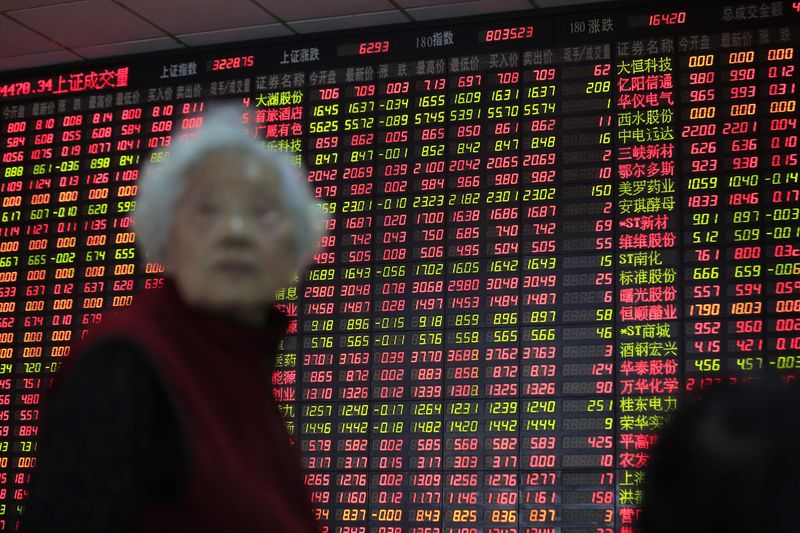Investing.com - Asian shares fell on Wednesday as tension on the Korean peninsula weighed on sentiment.
Japan's Nikkei 225 fell 0.17%, while South Korea's Kospi dipped 0.35%. In Audstralia, the S&P/ASX 200 eaed 0.27.
In Australia, GDP for the second quarter came in at a rise of 0.8%, just below the 0.9% gain seen on quarter and a 1.8% rise at an annual pace, just below the 1.9% increase expected.
Earlier, Japan reported average cash earnings dropped 0.3%, compared with a gain of 0.5% expected for August on year.
Greater China saw the Hang Seng index down 1.03% in Hong Kong an the Shanghai Composite down 0.28%.
Tensions on the Korean Peninsula continued to simmer, with a North Korean diplomat threatening that the country was prepared to deliver "gift packages" to the U.S. if the latter continues to put pressure on Pyongyang. South Korea has said further missile tests could be expected from North Korea following its last nuclear test on Sunday.
Markets also digested Fed Governor Lael Brainard's comments on Tuesday that the Federal Reserve had to be "cautious about tightening policy," given that inflation was below the central bank's target.
Overnight, U.S. stocks closed sharply lower on Tuesday, as geopolitical uncertainty in the Korean peninsula continued to fuel safe-haven demand, weighing on investor appetite for risk.
The Dow Jones Industrial Average closed lower at 21,753. The S&P 500 closed 0.75% lower while the Nasdaq Composite closed at 6375.57, down 0.93%.
In what was the first day of the U.S. trading week, following the Labor Day holiday Monday, investors fled risk assets in search of safe havens like gold and the yen as tensions between the U.S. and North Korea remained elevated, following a nuclear weapons test in Pyongyang over the weekend.
North Korea successfully tested a hydrogen bomb that can be mounted onto an intercontinental ballistic missile. This was North Korea's sixth nuclear test since 2006 and its most powerful to date.
Also adding to negative sentiment in U.S. stocks was a sharp sell off in Financials, mostly banks, amid a drop in expectations of a third rate hike later this year, following dovish comments from Fed officials on Tuesday.
Minneapolis Federal Reserve Bank President Neel Kashkari said the Federal Reserve’s recent interest rate hikes may be slowing inflation and inflicting “real harm” on U.S. economic growth.
"Maybe our rate hikes are actually doing real harm to the economy," said Kashkari.
Kashhkari's comments came a few hours after Federal Reserve Governor Lael Brainard urged the U.S. central bank to delay raising interest rates until the trend of slowing inflation improved.
The dovish tone on monetary policy from the two Fed officials comes ahead of the Federal Reserve Open Market Committee (FOMC) meeting slated for Sept. 20.
